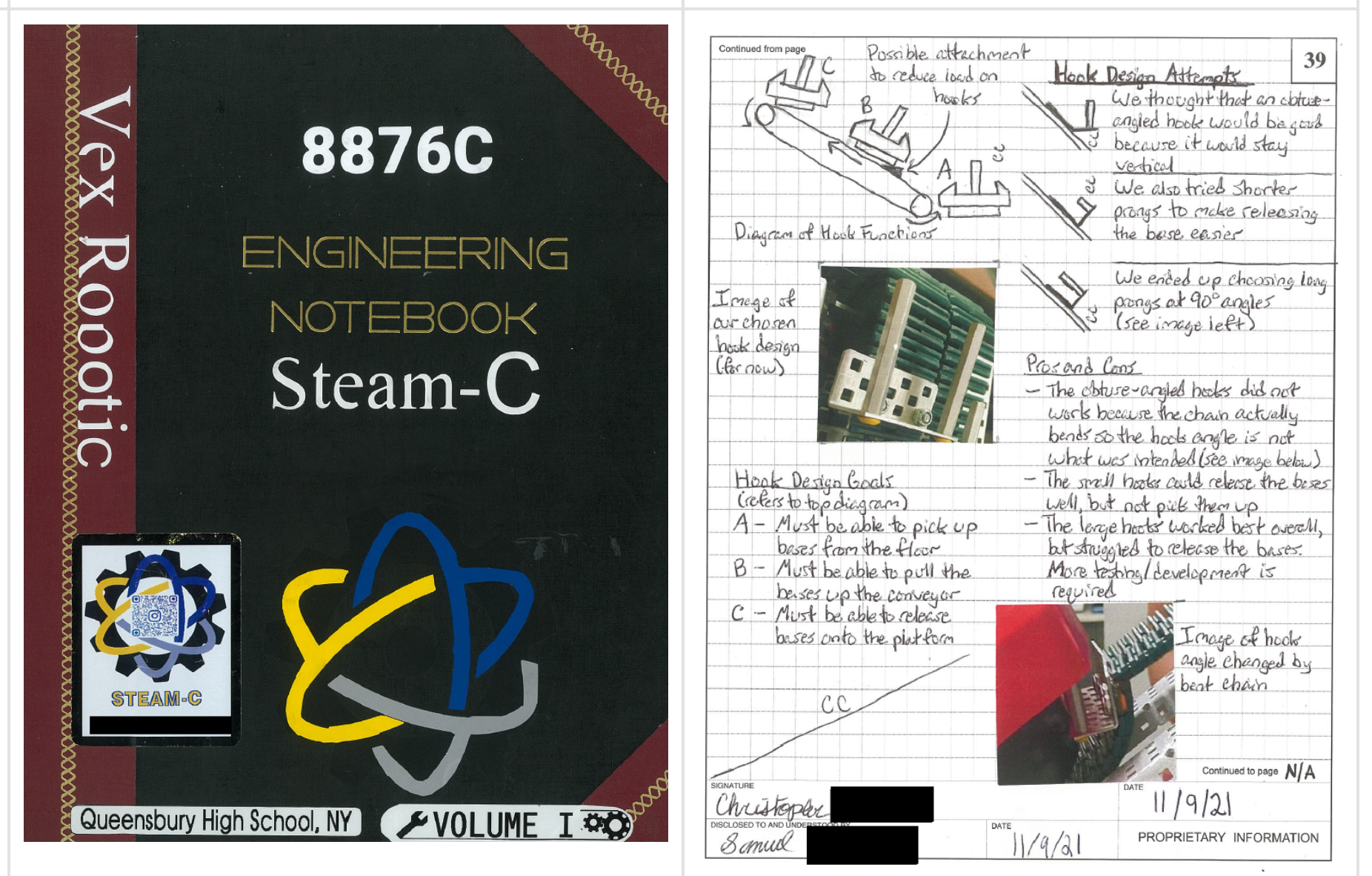VEX IQ Full Volume - Considerations for Robot Design Part 1
VIQC 2023/24 Full Volume
The Hero Robot Byte for the Game
VEX Full Volume Hero Robot - Part 1
Some points to mention:
- Three parts / subsystems:
- Drivetrain (or chassis) to move the robot
- Arm to reach the blocks
- Intake to pick up and release the blocks
- 6 motors used, that’s the max allowed for in the competition. So adding add. motor-driven functionality requires you to substitute existing motors.
- Hitting a goal slightly sideways, allow you to square the robot up to the wall. Allows you to lining up the robot faster.
- Robot can reach into the supply zone.
- The arm can move more than 180 degrees
- several design decisions to improve its pivot point and centre of mass.
- the robot has several sensors to automate decisions when coding for autonomous driving.
VEX Full Volume Hero Robot - Part 2
Some points to mention:
- The Byte robot can only handle two green and one purple block at a time. The red blocks are not supported.
- Speeding up the drivetrain?
- Size of the intake?
- online VEX Library
Third Party Models
Vacuum sweeper
Triple spinning roller and teamwork
Analysing the robots
- Byte Robot and only the two robots here only handle green and purple blocks
- Spinning rollers for continuous operation
- 80 - 100 Point range for single robot operation.
- Review the rules for what you are focusing on. It may be impossible to do all tasks, even partially, so break down the tasks, and decide for the best mix.
Following are some other videos that may be interesting for your design considerations
Sweeper, only taking green blocks, scoring 91 points
Teamwork - Strategy to share cleaning coloured blocks, in particular the red blocks.
Scoring Table, highlighting the three phases of the game

Engineering Handbook
An important part of the competition is the journaling of your activities when designing, building, and running your robot. All this should be kept in a centralized, structured document. Here you can find some descriptions on how to tackle this task.
The example below should give you an idea on how to arrange your notes and what is worthwhile to record; click on the image to get more examples.
We will create our notebook making Google Slides, here you find a template you can use. You can always use paper written notes, they will be scanned and you can then incorporate the pages into your electronic enginieering journal.
Each group can track their progress jointly in one notebook.
Additional links
- Control Software for Hero Robot Byte
- Build instructions for Hero Robot Byte. It is best to download the pdf file so that you have it readily available for the next time you come to the activity, even without accessing the internet.
